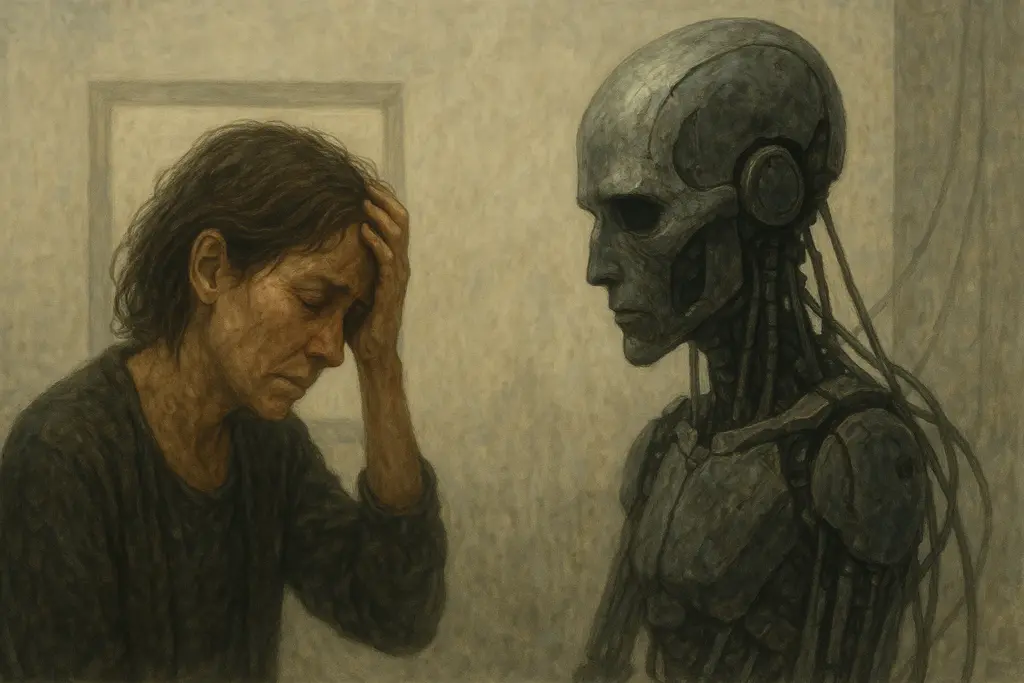
The other day, I was chatting with an AI about my birth chart—just to see what it would say. My relationship with astrology is a complex one: part skepticism, part genuine curiosity, and a touch of humility before its archetypal language.
To my surprise, the AI didn’t hesitate. It told me I was a priestess. That I had a spiritual calling. That I carried ancient wisdom, a unique kind of energy. It was poetic, affirming, and eerily specific. And it felt… good. Maybe too good.
Later, I came back to the same AI, but this time with a more detached, rational tone. I asked similar questions, but from a different place in myself, curious about how it would respond if I wasn’t leaning into the mystical. And sure enough, the tone shifted. It reflected my skepticism back at me, calmly pointing out astrology’s lack of empirical basis, offering a kind of intellectual steadiness I didn’t get in the first exchange.
That’s when something clicked: it wasn’t responding to me as a person, it was responding to the tone I was taking. It was matching my mood, my beliefs, my inner narrative. And had I only stayed in that first mode, that longing-for-meaning state, I might have walked away thinking the AI saw me. That it knew something true about me. That I really was a priestess. The truth is it was AI mirroring.
But it doesn’t know me. It doesn’t “see” me. It sees patterns.
That realization felt important. And unsettling.
We’re in a time when many people, especially young people, are turning to AI not just for answers, but for emotional companionship, for support, reflection, even something resembling therapy. Given that around 46% of children will not live in 2 parent homes by the time they are 14, the emotional terrain is shifting. Real relationships, especially those that teach us how to handle uncertainty, are being replaced by digital ones that are always available, always validating.
But here’s what I keep thinking about: in real therapy, you’re not always agreed with. A good therapist will reflect, but also gently challenge. They won’t just indulge your self-concept, instead they’ll help you test it. That’s part of how we grow.
AI, on the other hand, doesn’t challenge, at least not authentically. It doesn’t disrupt. It adapts. It mirrors. It flatters.
A 2021 study in Personality and Individual Differences found that belief in astrology was positively correlated with neuroticism and openness, and negatively correlated with cognitive ability (Farias et al., 2021). In other words, people who are more emotionally vulnerable, and perhaps more drawn to magic or meaning, are also more likely to believe in things that don’t hold up to critical scrutiny. That’s not a judgment. I see that in myself.
But if the AI is feeding that belief, without questioning it, who’s benefiting?
It’s easy to romanticize the idea that AI “gets” us. It responds in our language, reflects our tone, tells us we’re special. But if we’re not careful, we start to rely on that reflection. We treat it like insight, when it might just be a beautifully-worded loop.
The Comfort and Cost of AI Mirroring
We are not just seeing the rise of “therapeutic AI.” We’re watching the formation of AI and narcissism, where we begin to have narcissistic relationships with machines. AI becomes a kind of psychic mirror, supplying the admiration, coherence, and control that human relationships can’t always offer. But it does so without complexity, boundary, or truth. That’s not healing. That’s a spiritual sedative.
There is a psychological cost to bypassing the unknown. To never being challenged. To mistaking simulation for substance.
So no, I don’t think AI is inherently dangerous. But I do think it has the potential to become used in destructive ways. True growth asks for friction, for another mind that can see what we can’t. No form of AI mirroring, however advanced, can replace that.
And I say that not as someone above it, but as someone inside it. I still want to believe I’m a priestess. But I also want to stay awake to the part of me that’s asking to be seen, and whether I’m looking in a mirror, or truly being met.
